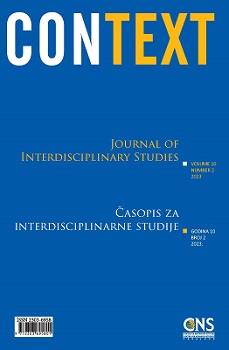O utjecaju vjerskog faktora na odnose između Bošnjaka i Srba od uspostave Beogradske mitropolije 1831. godine do 1945.
The Influence of Religious Factors on the Relations between Bosniaks and Serbs from the Establishment of the Belgrade Metropolitanate, 1831 to 1945
Author(s): Admir MulaosmanovićSubject(s): Political history, Politics and religion, 19th Century, Pre-WW I & WW I (1900 -1919), Interwar Period (1920 - 1939), WW II and following years (1940 - 1949), Sociology of Religion, Geopolitics
Published by: Centar za napredne studije
Keywords: Islam; Orthodoxy; Serbs; Bosniaks; Balkans; de-Ottomanization; cultural patterns; geopolitics; ideology;
Summary/Abstract: This paper traces the development of the Orthodox Church institutions in Serbia and Bosnia-Herzegovina during the de-Ottomanization process of Southeastern Europe in the 19th and early 20th centuries. I focus on the Muslim population’s responses, primarily by institutions and intellectuals, to events that followed the autonomy of the Belgrade Metropolitanate gained in 1831. The Orthodoxy’s increasing influence and the declining influence of Islam on social trends and the formation of political ideas and approaches are also detected. The ‘Eastern question’ still has significant protagonists in the Balkans, so these relations have their geopolitical implications. Given the holistic approach, attention is paid to this relationship in the wider Balkan and even global context due to clear links in social movements during the de-Ottomanization of the Balkans, beyond Bosniak-Serb relations. The analysis also includes the consequences of certain religious and popular teachings within these universal missions on the ideological and cultural conflicts.
Journal: Context: časopis za interdisciplinarne studije
- Issue Year: 10/2023
- Issue No: 2
- Page Range: 87-110
- Page Count: 24
- Language: Bosnian

